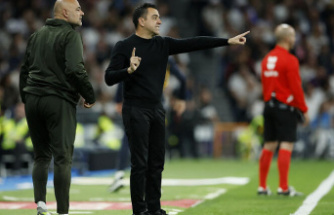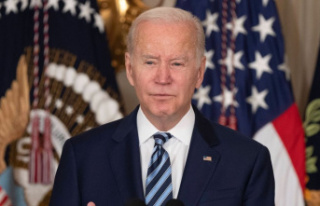It's a classic at every Olympiad. Did the organizers manage to hold the purse strings or did they, like so many other illustrious predecessors before them, have to resolve to let the expenses slip away? This "2020" edition of the Olympic Games which open this Friday is not immune to debate. But with the one-year postponement due to a pandemic, forcing Japanese organizers to further toughen living conditions on the archipelago to avoid any outbreak of the virus in a country where public opinion is now very hostile to the outfit. of the event (78% against the Olympics according to a recent Ipsos survey), the budgetary question takes on even greater importance.
Yes, the Tokyo Games will be the most expensive in history since the total bill should exceed 15 billion dollars. "In September 2013, the IOC's evaluation report presented a budget of 6.6 billion euros for the organization of the Olympic and Paralympic Games in Tokyo", recalls Magali Tézenas du Montcel, general delegate of Sporsora, the association which brings together professionals from the French sports economy.
The difference between the initial estimates and the final costing is certainly explained by an accumulation of constraints, but also by a procedure for selecting host cities which always tends to underestimate the score. "The Olympic movement no longer wants to be criticized for being gigantic (see Athens 2004 or London 2012, editor's note). From now on, you have to be responsible to win the Games. And once you are officially designated , comes the real bill", deciphers Vincent Chaudel, economist and founder of the Sport Business Observatory.
Tokyo 2020 budget exceeds London 2012 budget
DR
It must be said that on the expenditure side, the Japanese did not skimp. In a country plagued by earthquakes, all the new constructions (the Olympic village and eight brand new stadiums, etc.) have been made to ultra-demanding standards. The security aspect has also been greatly reinforced since this financial item alone, which includes thousands of robots, video surveillance cameras and tens of thousands of agents in the field, already amounts to over one billion dollars. euros. "It must be added that the postponement of 2020 was decided when the whole machine was launched at full speed, with all the recruitments carried out. And all these expenses around the reception of the public have become obsolete since the camera", recalls Vincent Chaudel. In 2019, the Board of Auditors of Japan estimated that the official budget had not taken into account nearly 9 billion euros in state spending in anticipation of the Olympics between 2013 and 2018.
However, on the revenue side, the Japanese sponsors responded, bringing the patriotic fiber to life. 68 national companies (NEC, Canon, Asics, Asahi, etc.) financed the Tokyo Games. Marketing revenue totaling 2.8 billion euros, a record! To this must be added the 14 direct partners of the International Olympic Committee (Coca-Cola, Samsung, Airbnb, Visa, etc.) whose average entry ticket is around 200 million euros, which doubles the envelope with 2.9 billion euros paid for these premium sponsors.
Tokyo 2020 revenue distribution
Sporsora
Finally, it is necessary to add TV broadcasters such as the Discovery group (Eurosport) which has acquired, for example, the exclusive broadcasting of all the Olympic events in Europe between 2018 and 2024 for the trifle of 1.3 billion euros.
So many private actors without whom the Olympics could no longer take place and who would not have hesitated to ask the IOC for accounts and reimbursements in the event of outright cancellation. "For all these reasons, the IOC and Japan could not let go of the Games. We are not far from a question of survival. If Tokyo had not held, the whole Olympics pyramid would have collapsed", even advances Vincent Chaudel. And we are not even talking about the athletes for whom the Games are the culmination of several years of sacrifice.
So yes, the Japanese organizers will have to do without foreign tourists, who also weigh heavily in the balance. When the Japanese Games were awarded in 2013, the archipelago welcomed around 10 million visitors per year. In 2019, on the eve of the event, tourist numbers had already tripled! When we know that the daily budget of an Olympic spectator is between 100 and 150 euros, it will ring hollow in the cash drawer of Tokyo 2020.
Moreover, what consequences will this edition under Covid leave on Paris 2024? It has already forced the Parisian organizing committee to revise its budget downwards, Tony Estanguet and his teams having already found more than 400 million euros in savings (i.e. 10% of its budget) this winter by redesigning a little the map of the Olympic venues. But for Paris 2024, which promises economical Games at 7.3 billion euros (3.9 billion for the organization and 3.4 billion for infrastructure) without major projects to get out of the ground, the risk is more political than 'economic.
The first announcements of postponement of delivery of certain metro lines in Greater Paris could fuel a discourse of defiance. If we cannot yet speak of an "anti-Olympics" movement as is the case in Japan, "the Games are nevertheless an incarnation of globalization. This is both its strength and its weakness", believes Vincent Chaudel. Moreover, in Olympic jargon, we prefer to speak of "universalism" to avoid problems. However, it is not innocent that the IOC has just awarded the 2032 Summer Olympics to Brisbane and the Queensland region in Australia. Admittedly, Sydney has already welcomed them in 2000. But which capital, apart from emerging countries or the Gulf, would now risk submitting its candidacy? Paris could well be the last of a long series.












